Addiction is a chronic, progressive disease that can destroy relationships and ruin lives.
According to the National Institute on Drug Abuse, an addiction is a brain disorder that causes someone to continue to seek drugs or alcohol despite any harmful consequences they may have experienced.
CenterPointe Hospital offers an array of clinically excellent services that can help you stop abusing substances. With the support of our caring and compassionate team, you can find your unique path to recovery.
Signs & Symptoms of Addictions
While there are some common signs and symptoms of an addiction, everyone’s experience with this disease is as unique as they are. That’s why it’s important to understand that not everyone behaves or responds the same way when they are struggling with an addiction. Signs and symptoms of an addiction might include:
- Compulsion to use the drug daily or several times a day
- Intense urges for the drug that block out any other thoughts
- Needs more of the drug to get the same effect
- Uses larger amounts of the drug over a longer period
- Multiple failed attempts to stop using the drug
- Makes certain that they maintain a supply of the drug
- Spends money on the drug even if they can’t afford it
- Isn’t meeting obligations and work responsibilities
- Cuts back on social or recreational activities
- Continues to use the drug despite negative consequences
- Does things to get the drug that they normally wouldn’t do
- Does risky things when under the influence
- Spends most of their time using or recovering from the effects of the drug
- Experiences withdrawal symptoms after attempting to stop using the drug
Common Causes of & Risk Factors for Addictions
There’s no single reason why someone might struggle with an addiction, but there are certain factors that can put someone at a higher risk. Common causes of and risk factors for addictions include:
- A family history of addiction
- Lack of family support or supervision
- Difficult or traumatic family environment
- Using substances at an early age
- Peer pressure to use substances
- Self-medicating a mental health disorder
Addiction Statistics
Based on the 2020 National Survey on Drug Use and Health, the Substance Abuse and Mental Health Services Administration reported the following statistics on addiction in the United States:
- In the previous year, 40.3 million people age 12 and older struggled with an addiction.
- The percentage of previous-year addictions was highest among young adults ages 18-25 (24.4%), followed by adults age 26 and older (14%) and adolescents ages 12-17 (6.3%).
- Among people age 12 and older who struggled with an addiction within the previous year, only about 2.6 million (6.5%) received any treatment during that time.
Effects of Addictions
Like any disease, an addiction doesn’t always affect everyone the same way. But when people don’t seek professional help, there are certain negative consequences they may experience because of their struggles with this illness. Effects of an addiction may include:
- Damaged relationships with friends and family
- Inability to maintain a job or succeed academically
- Ongoing financial troubles, bankruptcy, or homelessness
- Frequent run-ins with the law, arrests, or incarceration
- Persistent health problems and growing medical bills
- Development of a mental health disorder
- Suicidal thoughts, actions, or attempts
While the effects of an addiction can be devastating, the good news is that recovery is possible with appropriate support.
Withdrawal Symptoms
People who struggle with addictions often suffer from withdrawal symptoms when they try to stop using substances on their own. Withdrawal symptoms can vary depending on the substance someone was using and how long they were using it. These symptoms might include:
- Intense cravings
- Stomach cramps
- Nausea or loss of appetite
- Vomiting or diarrhea
- Hand tremors
- Body shakes
- Muscle aches
- Racing heart
- Sweating
- Trouble sleeping
- Agitation or irritability
- Depression
- Thoughts of suicide
Trying to complete withdrawal on your own can be a harrowing experience, and it’s often the barrier that keeps people from achieving recovery. By getting care at a facility that offers detox, you can complete this process with the help of trained professionals who can support you every step of the way.
What Happens if I Relapse?
Seeking professional help for an addiction takes courage, and the work you put in can set you on the path to a substance-free life. But setbacks can happen, and if you do relapse, know that you haven’t failed.
Relapse doesn’t have to stop you from living a life in recovery. By taking appropriate steps, you can make sure that it is just a temporary roadblock. Turning to your care team during times of crisis can help you get back on track and prevent any long-term damage from occurring.
Common Underlying or Co-Occurring Disorders
Many people’s struggles with an addiction are worsened by the presence of a co-occurring mental health disorder. In most cases, living with one behavioral health condition can make it difficult for the person to function, and adding another often amplifies those daily challenges.
CenterPointe Hospital conducts a detailed assessment of every person’s unique situation, and we provide personalized care that addresses not just addiction concerns but also any co-occurring mental health conditions they might be facing.
This content was written on behalf of and reviewed by the clinical staff at CenterPointe Hospital.






